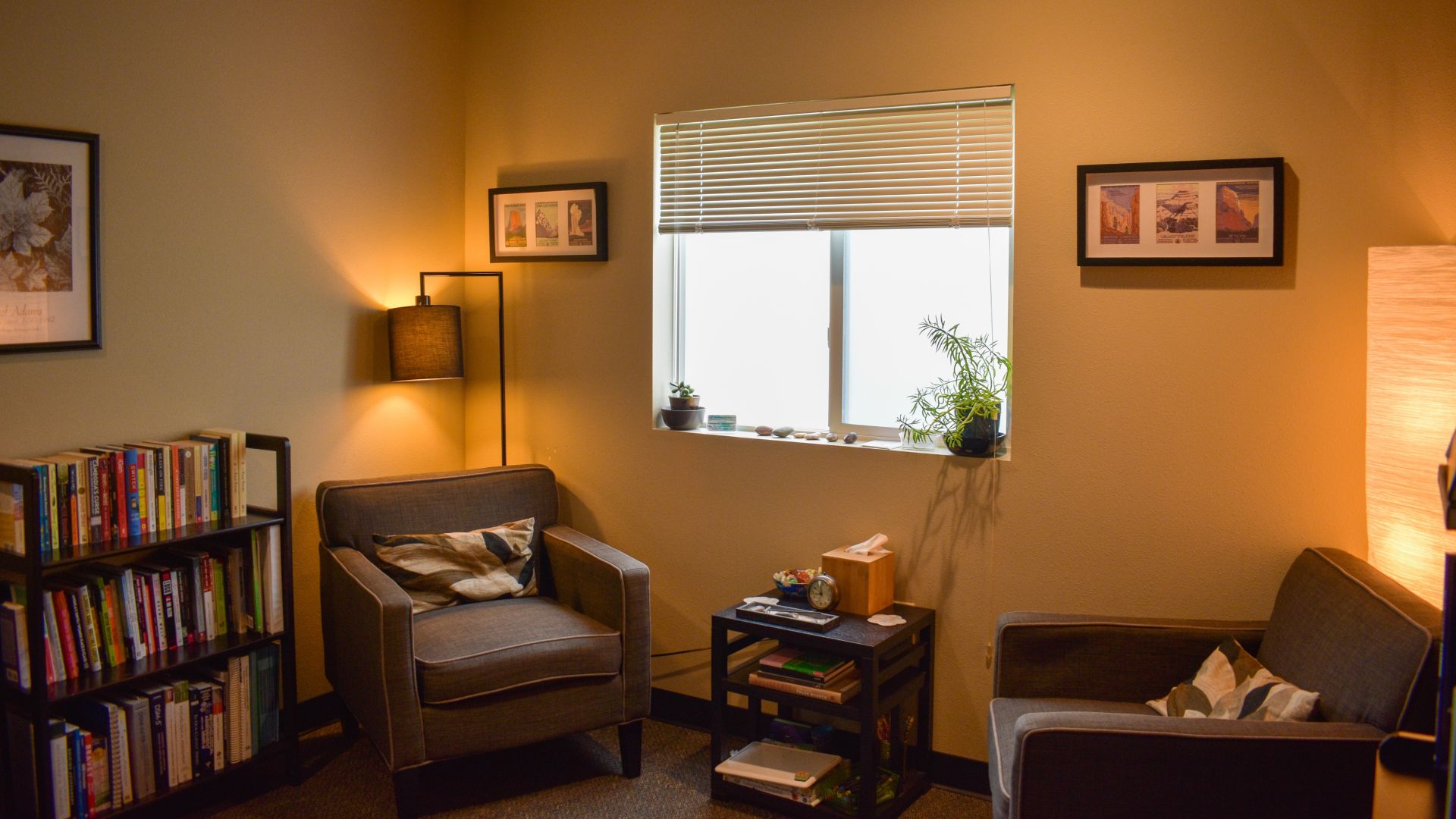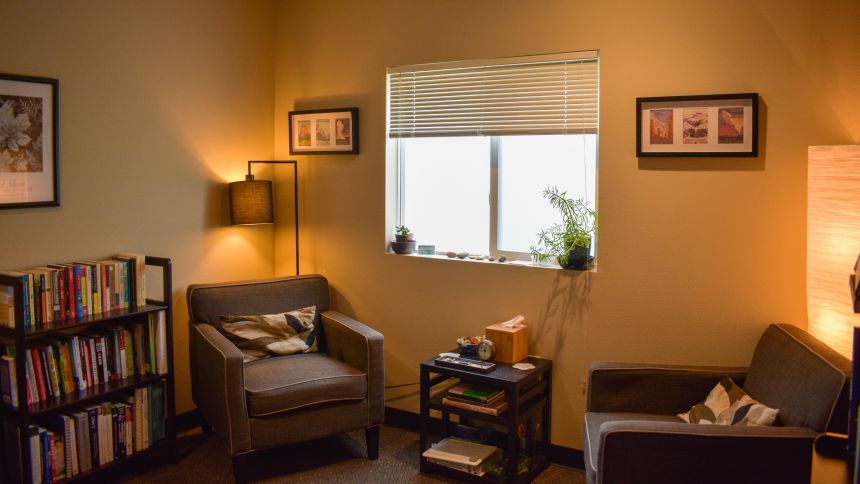Enrolled students who have paid the Student Support Fee are eligible for services at the SCC; no insurance is required. We make every effort to serve as many students as possible; therefore, we have adopted a short term therapy treatment model and are unable to provide long-term, comprehensive, or specialty psychological services. For students whose concerns fall outside of our scope of practice, we assist with referrals into the community. We are providing both in-person and teletherapy services; mask wearing is not required, but is welcomed at the SCC clinics.
Consulting and Referral
We provide consultation for students, faculty, staff, and family regarding concerns they may have about an enrolled student at Pacific, and how they may be of support. Referrals to community resources and community providers are provided to students whose concerns fall outside of our scope of practice. When seeking mental health care in the community, it can be helpful to review this guide for using your insurance to find a counselor (pdf).
Crisis Services
The Pacific community (students as well as staff, faculty, or family concerned about a student) may call our 24/7 Support & Crisis Line at 503-352-2999 from anywhere at anytime; language translation services are available on the crisis line.
We offer in-person (Monday-Friday in Forest Grove and Tuesday-Thursday in Hillsboro ) and teletherapy Monday-Friday drop-in at noon for students with urgent concerns; call or email by noon to arrange your appointment. During regular business hours, students, faculty and staff may contact the Counseling Center (503-352-2191) regarding student and campus emergency situations. For local crisis lines and in-person emergency care, visit our crisis resources.
Short Term Individual Counseling
Confidential individual services are available to all Pacific University students through an initial consultation appointment. Concerns commonly addressed include adjustment to college or professional programs, stress management, academic performance, depression, anxiety, difficulties in relationship, grief and loss, identity exploration, body image concerns, and healing from interpersonal violence.
Group Therapy
Group counseling provides a safe environment for self-exploration and collaborative problem-solving, combining professional guidance and the support of your peers. Group counseling is an effective approach to many common concerns for college students, including: navigating difficult relationships, coping with anxiety, and feelings of isolation. Visit our group counseling page for more information and current offerings.
Scope of Practice
***Our Scope of Practice is best reviewed in session with an SCC therapist to clarify any questions that may arise. If you are not currently a client at the SCC and have questions about our Scope of Practice please direct your questions to counselingcenter@pacificu.edu***
The Student Counseling Center (SCC) is committed to improving students’ well-being by co-creating nurturing spaces for students to heal, grow, and develop belonging. We bring an awareness of the impact of systemic oppression and recognize that well-being encompasses cultural, emotional, intellectual, physical, social, and spiritual development. We offer a variety of clinical services for students, including consultations, same-day crisis services, group counseling, and short-term individual therapy to eligible students.
We make every effort to serve as many students as possible whose presenting concerns fall within our scope of practice and would be best served within our center. Therefore, we provide short-term individual counseling and are unable to provide long-term, comprehensive, or specialty mental health services. Our providers have a broad range of competency with the following presenting concerns when these concerns can be treated within a short-term treatment model. When student’s presenting concerns fall beyond our scope of practice, as outlined below, we will provide referrals into the community. If you are unsure whether the SCC services will fit your needs, our providers will offer individualized recommendations after your initial consultation.
- Crisis consultation and support
- Low self-esteem
- Mild to moderate anxiety related concerns
- Adjustment to college life and other transitions
- Mild to moderate mood related concern
- Relationship and family difficulties
- Loneliness
- Non-suicidal self-injury
- Grief and loss
- Emotional concerns
- Cultural identity development
- Experiencing oppression and bias
- Thoughts of harming self or others
- Body image related concerns
- Mild eating related concerns
- Trauma and experiences of interpersonal violence
- Mild alcohol and substance use concerns, relapse prevention
- Academic performance, motivation, and study skills
- Personal growth and development
- Stress management and building resiliency
- Development of coping skills and self-care plans
- Providing referrals to mental health services in the community
Beyond Our Scope of Practice:
For those students whose concerns cannot be accommodated within our scope of practice, the staff at the SCC will facilitate a referral to mental health services in the community. Such referrals might occur immediately following an initial consultation or after some treatment and a further assessment of clinical needs has taken place. SCC services are not an appropriate substitute for long-term, comprehensive, or specialty mental health services. Some common examples of concerns and needs that may be more suited to an outside referral include but are not limited to:
- Students in need of ongoing or intensive support to treat chronic, serious mental health conditions
- Students with severe mood disorders, severe and reoccurring acute suicidality, severe self-injury, or multiple psychiatric hospitalizations
- Students with significant or chronic disordered eating patterns (i.e., those whose symptoms pose medical danger or require intensive outpatient or residential treatment)
- Students with significant or chronic substance use related concerns (i.e., whose symptoms pose medical danger or require intensive outpatient, residential treatment, detox, or hospitalization)
- Students with active psychotic symptoms or severe dissociation symptoms at risk for progressive deterioration of functioning and in need of intensive treatment for stabilization
- Students who are unable to maintain prolonged periods without therapy (i.e., during academic breaks and reduced availability in summer)
- Students who are unable to wait for services during peak utilization or who are in need of evening or weekend appointments
- Students with a desire to be seen more frequently than SCC resources can provide (e.g., consistent weekly therapy), or on a long-term basis
- Students for whom a short-term treatment model (e.g., up to 10 sessions annually) would be detrimental or inappropriate to the diagnosis or presenting concerns as determined by SCC clinicians
- Students who want to regularly see the same provider over multiple years
- Students who, despite ongoing efforts of their counselor, are not achieving progress with established counseling goals
- Students whose needs fall outside of the clinical expertise of SCC staff or who may need a specific type of therapy not practiced by SCC staff
- Students seeking or attempting to meet requirements of court-mandated treatment, legal proceedings, or employment clearance
- Students who are seeking counseling because it is a requirement of a class, and who are not otherwise motivated for or in need of treatment
- Students who are in need of couples or family counseling
- Students with the need/request for psychological testing/evaluation of any type, including but not limited to:
- Psychological testing for learning disabilities and/or ADHD
- Neuropsychological evaluations
- Forensic assessments
- Custody evaluations
- Assessment for service or emotional support animals
- Fitness-for-duty evaluations
- Students who engage in inappropriate, harassing, threatening, or violent behaviors towards the SCC staff
The SCC acknowledges that the nature of mental health concerns can be complex and multifaceted, therefore we utilize complex decision making and often consult with our team to provide specific recommendations regarding the best course of treatment for each student. Services provided by the SCC (i.e., crisis services, consultations, group therapy, and short-term individual therapy) have demonstrated effectiveness in supporting college students whose presenting concerns are within our scope of practice. Rare exceptions to short-term therapy are made on a case by case basis by our clinical team. We care deeply about ensuring that each Pacific student gains access to the appropriate level of mental health support, therefore at times a referral into the community is in the best interest of students.

